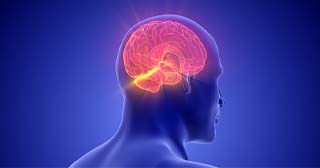5 ANTIOXIDANTS RICH FOODS

Family with Migraine history - Is there a Cure?
Are migraines a persistent problem in your family? Break the cycle! While there's no definitive cure, effective management strategies can bring relief. Explore cutting-edge treatments, lifestyle changes, and prevention techniques to reduce frequency and severity. Discover how genetic predisposition impacts your risk and learn how to create a migraine-free future for yourself and your loved ones.
Beat Migraine Heritage! Break free from family history and find lasting relief. Discover how to manage genetic predisposition, identify and avoid triggers, and harness cutting-edge treatments and therapies. Implement preventive lifestyle changes to reduce symptoms and create a healthier future for yourself and your loved ones. Take control and explore expert guidance and actionable strategies to overcome the cycle of migraine pain.
Rise above the pain, unlock a migraine-free tomorrow.
How to cope up with Migraines?
Coping with migraines requires a holistic approach. Start by making lifestyle adjustments - maintain a consistent sleep schedule, exercise regularly, and eat a balanced diet. Explore natural remedies like herbal supplements and essential oils. Manage medication with professional guidance and reduce stress through mindfulness, journaling, and yoga. Identify triggers by keeping a migraine journal and practice relaxation techniques like deep breathing.
What causes Migraines?
Migraines are complex disorders triggered by various factors, including hormonal fluctuations, stress, anxiety, sensory stimuli, sleep disturbances, certain foods (gluten, dairy, caffeine), genetic predisposition, environmental changes (weather, altitude), and medical conditions (sinusitis, hypertension). Identifying personal triggers is key to managing migraines, reducing frequency, and alleviating pain.
Symptoms of Migraines?
Migraine symptoms include severe, throbbing headaches, sensitivity to light and sound, visual disturbances (auras, flashes), nausea, vomiting, dizziness, fatigue, irritability, and tingling/numbness in face and extremities. Additional signs are difficulty speaking, concentrating, and neck pain. These symptoms can last from 4-72 hours, impacting daily life. Recognizing them helps diagnose and manage migraines effectively.
The next is to find relaxation.
To alleviate migraine pain, prioritize relaxation. Practice deep breathing exercises, meditation, yoga, or gentle stretching to calm your mind and body. Utilize calming music, nature sounds, warm baths, massages, or acupuncture to unwind. Limit screen time, social media, and aim for 7-8 hours of sleep nightly. Progressive muscle relaxation and visualization also help. By incorporating these techniques into your daily routine, you can reduce stress - a common migraine trigger - and find relief from migraine symptoms.



